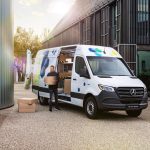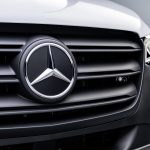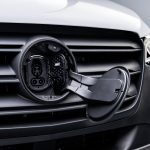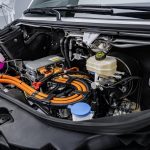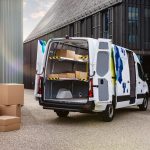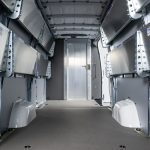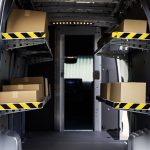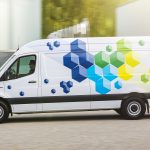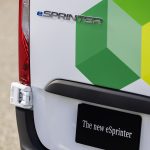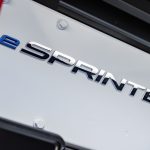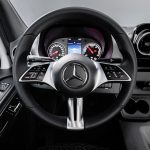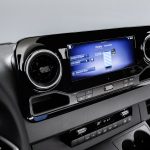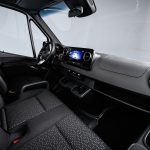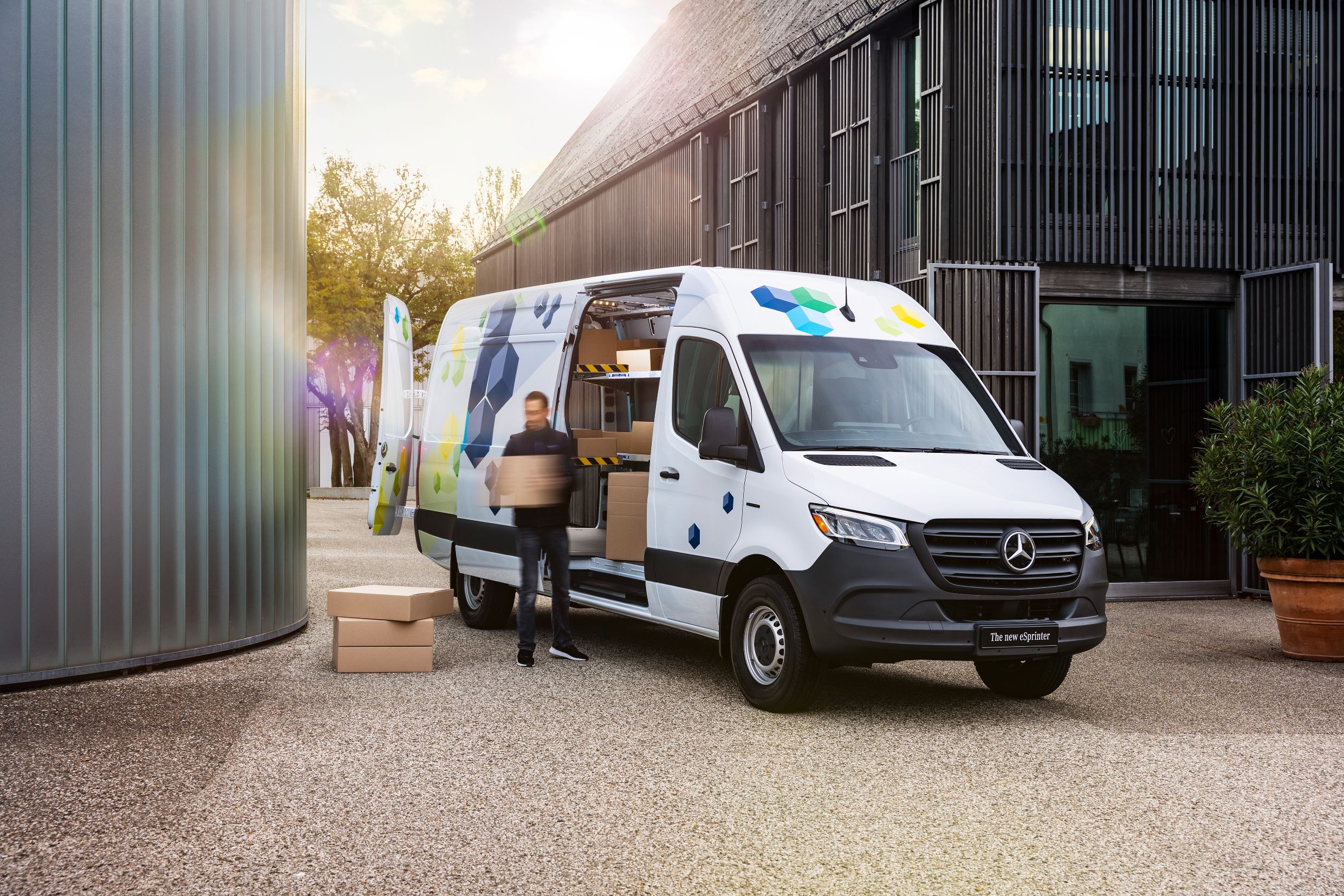
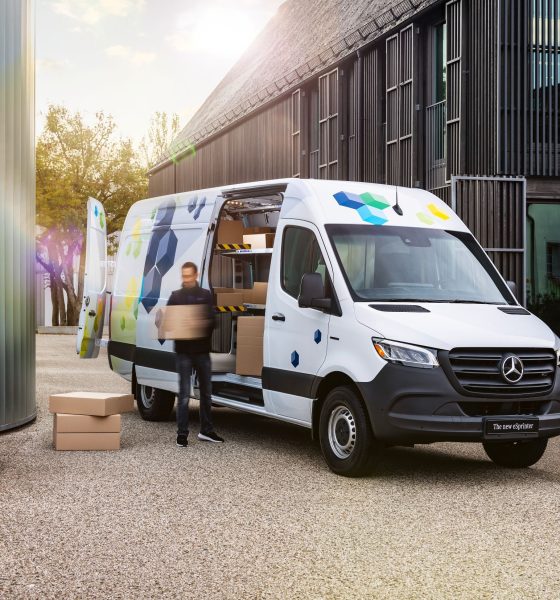
News
Mercedes-Benz unveils all-new eSprinter to take on Ford’s E-Transit
Mercedes-Benz unveiled its all-new eSprinter electric van today, which the German automaker pledges is its most efficient eVan yet.
It will take on the Ford E-Transit, which has widely dominated the all-electric sprinter market with only a handful of worthy competitors.
With plans to build the vehicle in North America and Europe, Mercedes-Benz said it would be its most efficient and versatile eVan. It will be the first time American customers can utilize a Mercedes-Benz eVan to make their fleets more sustainable.
Packing up to 400 kilometers (248.5 miles) of WLTP range based on simulations, Mercedes said its city cycle tests performed even better, with the eSprinter getting 500 kilometers (~311 miles) on a single charge.
- Credit: Mercedes-Benz
- Der neue Mercedes-Benz eSprinter // The new Mercedes-Benz eSprinter
- Der neue Mercedes-Benz eSprinter // The new Mercedes-Benz eSprinter
- Der neue Mercedes-Benz eSprinter // The new Mercedes-Benz eSprinter
It has 488 cubic feet of load capacity, with a permissible gross weight of 4.25 tons.
“With the new eSprinter, we are taking the electric large van segment to a new level,” Mathias Geisen, Head of Mercedes-Benz Vans. “The triad of efficiency, range, and load capacity with simultaneous TCO optimization makes the new eSprinter the most versatile Mercedes-Benz eVan ever.”
- Der neue Mercedes-Benz eSprinter // The new Mercedes-Benz eSprinter
- Der neue Mercedes-Benz eSprinter // The new Mercedes-Benz eSprinter
With versatility and technical innovations taking precedence, Mercedes-Benz said the new eSprinter would feature three modules, part of a new concept idea the automaker developed with consumers in mind. The modules will allow freedom in the development and design of various conversion paths, as not all eSprinter vans will be used for the same applications.
The three-module system is broken down into a front, battery housing, and rear, specifically responsible for the electrically driven rear axle:
“The front module, a uniformly designed front section, includes all high-voltage components and can be combined unchanged with all vehicle variants, regardless of wheelbase and battery size. The module for the integrated high-voltage battery is located in the underbody to save space. The battery location between the axles, together with the robust battery housing, results in a low center of gravity, which has a positive influence on handling and increases driving safety. The third pillar of the modular design is the rear module with the electrically driven rear axle. Following the principle of the common parts strategy, this is used in all variants of the all-new eSprinter. The compact and powerful electric motor is also integrated into the rear module.”
- Der neue Mercedes-Benz eSprinter // The new Mercedes-Benz eSprinter
- Der neue Mercedes-Benz eSprinter // The new Mercedes-Benz eSprinter
- Der neue Mercedes-Benz eSprinter // The new Mercedes-Benz eSprinter
Mercedes-Benz plans to utilize LFP, or lithium-iron-phosphate battery cell chemistries, in the eSprinter pack, which is free of cobalt and nickel but offers less power and range than others. It will pack 113-kilowatt hours of usable capacity and can be charged at speeds of 115 kW, getting batteries from 10 to 80 percent in about 42 minutes. The eSprinter is capable of both AC and DC charging.
The all-new eSprinter will also utilize the Mercedes-Benz User Experience (MBUX), which packs numerous features and services to promote ease of access and usability.
- Der neue Mercedes-Benz eSprinter // The new Mercedes-Benz eSprinter
- Der neue Mercedes-Benz eSprinter // The new Mercedes-Benz eSprinter
- Der neue Mercedes-Benz eSprinter // The new Mercedes-Benz eSprinter
These include real-time range estimates based on current traffic conditions and route topography. It will also show drivers the best charging strategy route to promote less travel time, and voice control functions.
Mercedes-Benz has invested around €350 million ($373,807,000) in the eSprinter project, with around €50 million ($53,401,000) going toward “each of the three plants in Charleston, Düsseldorf, and Ludwigsfelde to adapt their production.”
All vans Mercedes-Benz releases from 2025 on will be all-electric as a part of its holistic approach to transition to a fully-electric lineup.
I’d love to hear from you! If you have any comments, concerns, or questions, please email me at joey@teslarati.com. You can also reach me on Twitter @KlenderJoey, or if you have news tips, you can email us at tips@teslarati.com.

News
Tesla gives its biggest hint that Full Self-Driving in Europe is imminent
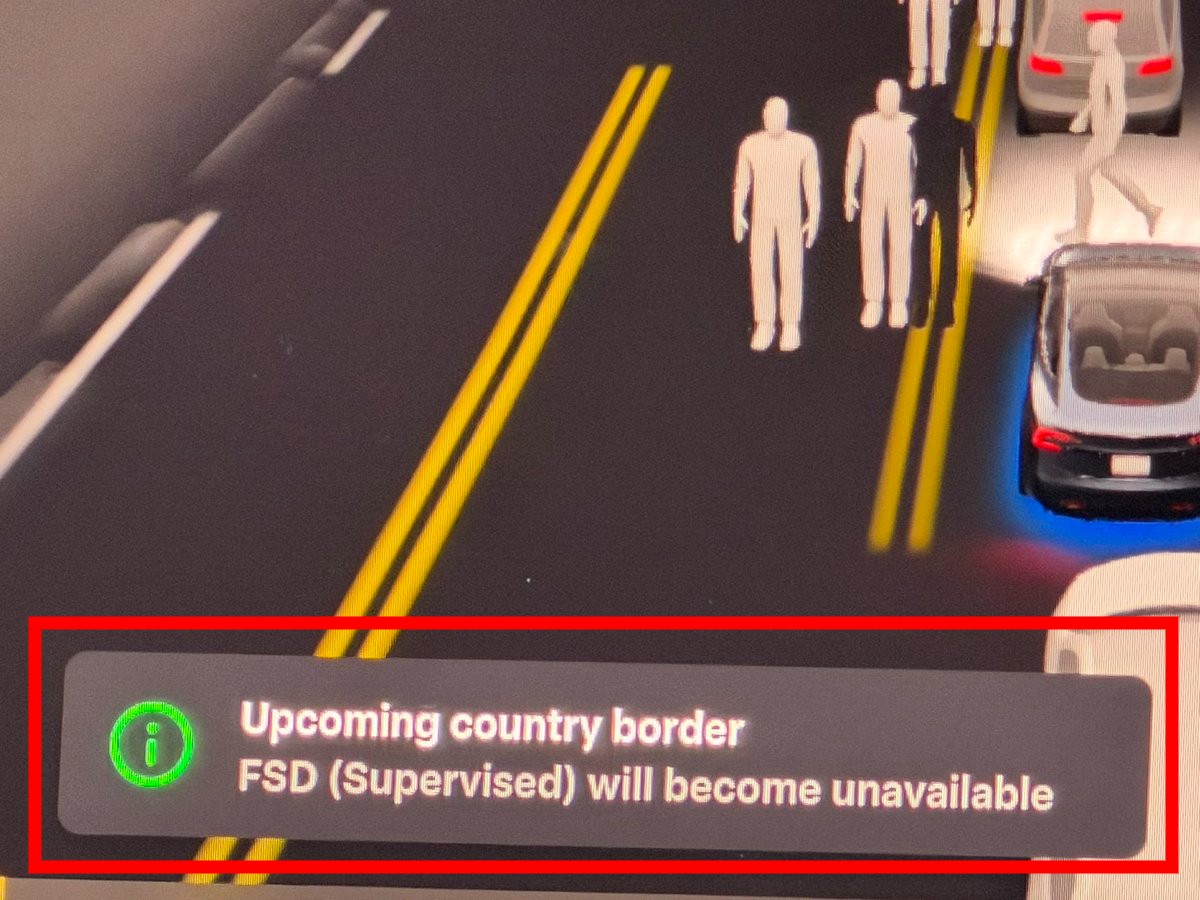
Tesla has given its biggest hint that Full Self-Driving in Europe is imminent, as a new feature seems to show that the company is preparing for frequent border crossings.
Tesla owner and influencer BLKMDL3, also known as Zack, recently took his Tesla to the border of California and Mexico at Tijuana, and at the international crossing, Full Self-Driving showed an interesting message: “Upcoming country border — FSD (Supervised) will become unavailable.”
FSD now shows a new message when approaching an international border crossing.
Stayed engaged the whole way as we crossed the border and worked great in Mexico! pic.twitter.com/bDzyLnyq0g
— Zack (@BLKMDL3) January 26, 2026
Due to regulatory approvals, once a Tesla operating on Full Self-Driving enters a new country, it is required to comply with the laws and regulations that are applicable to that territory. Even if legal, it seems Tesla will shut off FSD temporarily, confirming it is in a location where operation is approved.
This is something that will be extremely important in Europe, as crossing borders there is like crossing states in the U.S.; it’s pretty frequent compared to life in America, Canada, and Mexico.
Tesla has been working to get FSD approved in Europe for several years, and it has been getting close to being able to offer it to owners on the continent. However, it is still working through a lot of the red tape that is necessary for European regulators to approve use of the system on their continent.
This feature seems to be one that would be extremely useful in Europe, considering the fact that crossing borders into other countries is much more frequent than here in the U.S., and would cater to an area where approvals would differ.
Tesla has been testing FSD in Spain, France, England, and other European countries, and plans to continue expanding this effort. European owners have been fighting for a very long time to utilize the functionality, but the red tape has been the biggest bottleneck in the process.
Tesla Europe builds momentum with expanding FSD demos and regional launches
Tesla operates Full Self-Driving in the United States, China, Canada, Mexico, Puerto Rico, Australia, New Zealand, and South Korea.
Elon Musk
SpaceX Starship V3 gets launch date update from Elon Musk
The first flight of Starship Version 3 and its new Raptor V3 engines could happen as early as March.
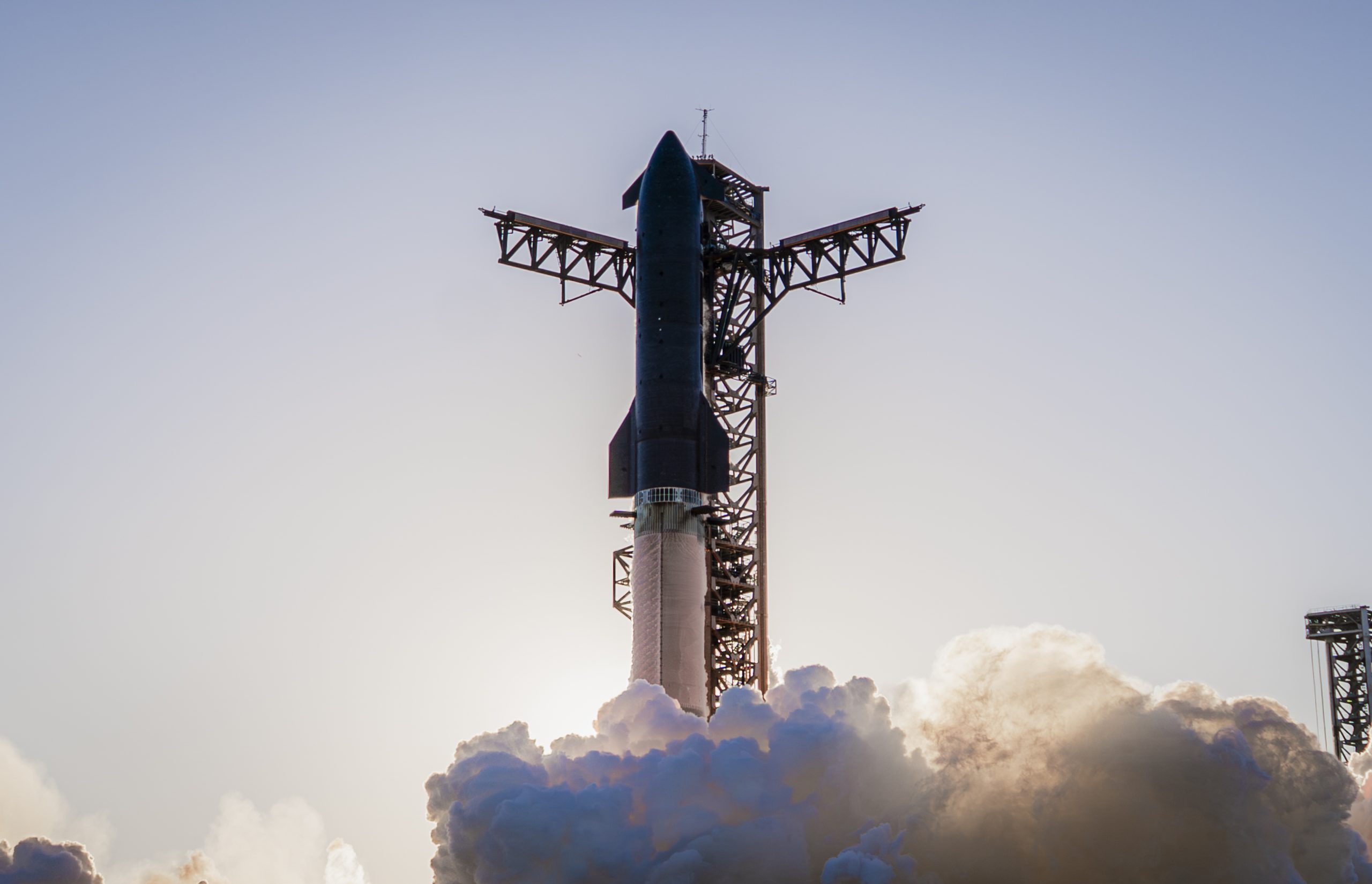
Elon Musk has announced that SpaceX’s next Starship launch, Flight 12, is expected in about six weeks. This suggests that the first flight of Starship Version 3 and its new Raptor V3 engines could happen as early as March.
In a post on X, Elon Musk stated that the next Starship launch is in six weeks. He accompanied his announcement with a photo that seemed to have been taken when Starship’s upper stage was just about to separate from the Super Heavy Booster. Musk did not state whether SpaceX will attempt to catch the Super Heavy Booster during the upcoming flight.
The upcoming flight will mark the debut of Starship V3. The upgraded design includes the new Raptor V3 engine, which is expected to have nearly twice the thrust of the original Raptor 1, at a fraction of the cost and with significantly reduced weight. The Starship V3 platform is also expected to be optimized for manufacturability.
The Starship V3 Flight 12 launch timeline comes as SpaceX pursues an aggressive development cadence for the fully reusable launch system. Previous iterations of Starship have racked up a mixed but notable string of test flights, including multiple integrated flight tests in 2025.
Interestingly enough, SpaceX has teased an aggressive timeframe for Starship V3’s first flight. Way back in late November, SpaceX noted on X that it will be aiming to launch Starship V3’s maiden flight in the first quarter of 2026. This was despite setbacks like a structural anomaly on the first V3 booster during ground testing.
“Starship’s twelfth flight test remains targeted for the first quarter of 2026,” the company wrote in its post on X.
News
Tesla China rolls out Model 3 insurance subsidy through February
Eligible customers purchasing a Model 3 by February 28 can receive an insurance subsidy worth RMB 8,000 (about $1,150).
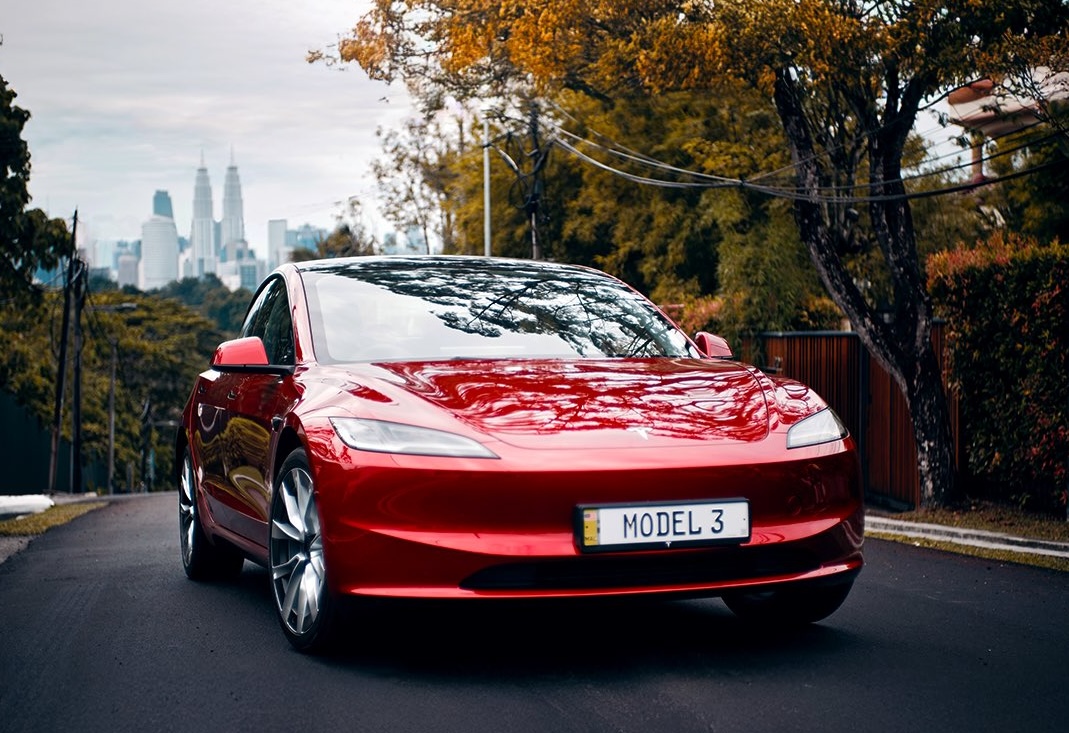
Tesla has rolled out a new insurance subsidy for Model 3 buyers in China, adding another incentive as the automaker steps up promotions in the world’s largest electric vehicle market.
Eligible customers purchasing a Model 3 by February 28 can receive an insurance subsidy worth RMB 8,000 (about $1,150).
A limited-time subsidy
The insurance subsidy, which was announced by Tesla China on Weibo, applies to the Model 3 RWD, Long Range RWD, and Long Range AWD variants. Tesla stated that the offer is available to buyers who complete their purchase on or before February 28, as noted in a CNEV Post report. The starting prices for these variants are RMB 235,500, RMB 259,500, and RMB 285,500, respectively.
The Tesla Model 3 Performance, which starts at RMB 339,500, is excluded from the subsidy. The company has previously used insurance incentives at the beginning of the year to address softer seasonal demand in China’s auto market. The program is typically phased out as sales conditions stabilize over the year.
China’s electric vehicle market
The insurance subsidy followed Tesla’s launch of a 7-year low-interest financing plan in China on January 6, which is aimed at improving vehicle affordability amid changing policy conditions. After Tesla introduced the financing program, several automakers, such as Xiaomi, Li Auto, Xpeng, and Voyah, introduced similar long-term financing options.
China’s electric vehicle market has faced additional headwinds entering 2026. Buyers of new energy vehicles are now subject to a 5% purchase tax, compared with the previous full exemption. At the same time, vehicle trade-in subsidies in several cities are expected to expire in mid-November.
Tesla’s overall sales in China declined in 2025, with deliveries totaling 625,698 vehicles, down 4.78% year-over-year. Model 3 deliveries increased 13.33% to 200,361 units, while Model Y deliveries, which were hampered by the changeover to the new Model Y in the first quarter, fell 11.45% to 425,337 units.
